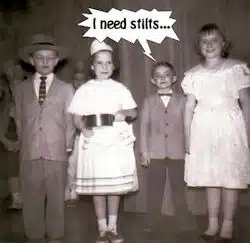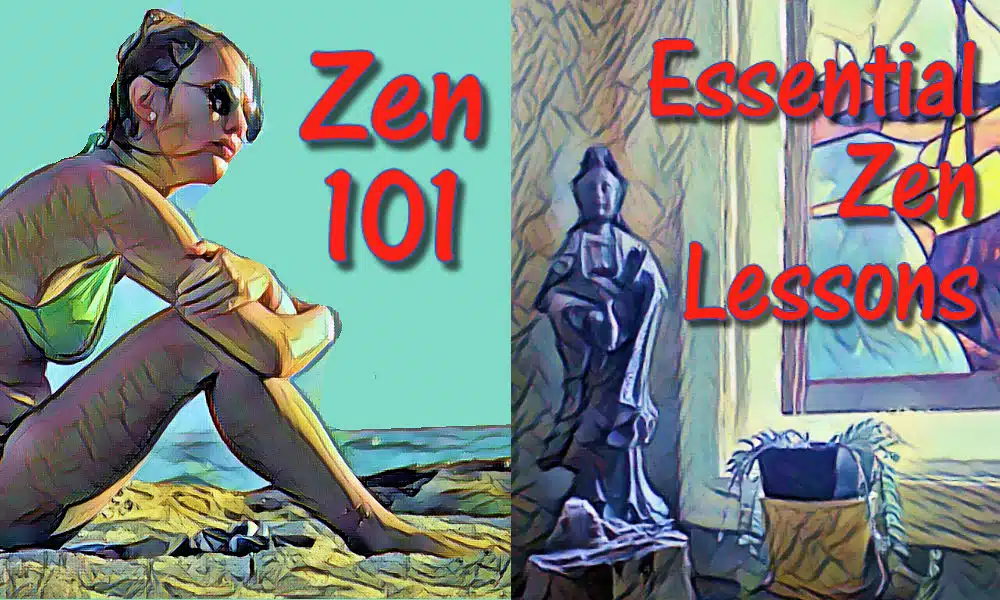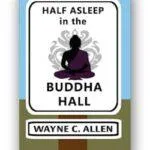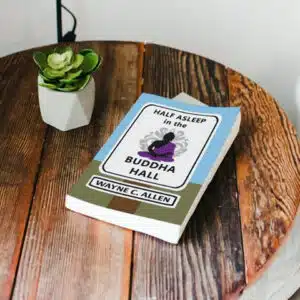Essential Zen Lessons — Coming into presence is the key focus of Zen, and is accomplished in Zazen and “simply noticing. Here we begin to explore the foundations of building an “attentiveness practice.”

A series on learning and living zen
Back in the day I read the June 2008 cover story of Psychology Today - “Dare To Be Yourself.” The problem with it is that it is decidedly results oriented, as something from a Western perspective would be. While it describes living with flexibility and flow,
it’s clear that such an approach is seen as a technique to get somewhere — to being authentic, (Whatever the hell that means.)
Well, gag me with a spoon.
“I want to be authentic, real, who I really am,” is often short-hand for, “I want to continue to do stupid stuff that doesn’t work, and get others to behave, so that I can be happy.”
It’s why so many people are so sappy when they “fall in love.” There’s all this emotional vibration going on, and it’s a distraction from the underlying dissatisfaction the un-examined life brings.
Zen, on the other hand, is all about “is-ness.”
In other words, what is going on inside of you — all of the mess, and game playing, blaming and drama, — IS your life. As is whatever your body is doing, moment by moment. To again quote the amazing Taoist, Stewart Wilde, “The way it is, is the way it is.”
I would say, “The way it is, is the only way it is.”
There is no getting past who we are, thereby achieving some state of bliss where everything is, well, “just perfect!” Perfect is just one more goal — one more “judgement point.”
The prevailing western myth is that the goal of life is happiness. From a Zen perspective, all that is possible is to be present. Or perhaps better put, all that is possible is the awareness of being present — it’s not that being present is a choice, after all.
Here’s the first three Essential Zen Lessons.
Essential Zen Lesson 1 — Be Present
If presence is all there is, why is it so hard to be so? Well, let me re-introduce you to your egoic mind structure.
For me, the odd part about the Psychology Today article is that the writer is caught in the “authentic self loop.” This is the idea that people are actually both real and “substantial.” Our minds do this to us by constructing stories of past and projections of future.

This is a photo of “me, age 8 or thereabouts.” Who is this person? Does he exist? Where?
If you say, “That is you then, and you are now who you are now,” there is no way to prove that. You’d say, “Yeah, but genetically you are the same.” No way to prove that. Even if you had a genetic sample from “then,” there’s no way to prove it came from “me, then.”
None, not one, of my cells is the same as his were “back then.”
In other words, the picture captures a frame in a movie.
He existed like that in that moment, and never before or since.
If I think I am actually him, then I will concoct stories about him; about how he was back then. But any story would be based in my “now.” What he was thinking, who he “was” back then — a mystery!
I actually have no clue about what this picture is of. I recognize the girl to my right, and she seems to be collecting the offering at school, which makes no sense. So, I’d have to invent a story.
Which is what you do, every time you describe yourself.
Presence is bringing your attention, continually, to the frame of the movie that is “now.” In this sense, it would be Zen-ish to say that we are processes as opposed to fixed realities. In each moment, with each breath, we come and go, are born, and die, and are born again. Hard concept, since all those memories and stories seem real.
A couple once assured me that they would always be “in romance” with each other. They imagined that they had been “in love / romance” for 8 months, after all.
Since they were pretending they could predict the future, I invited them to remember the beginning of other relationships, when they had felt the same about past lovers. They briefly looked sheepish, then spoke in unison, “This time, it’s different!” (Of course, they are right, but for another reason entirely!)
Desperation here, folks. I feel good right now, and I want this to last forever, while getting “better and better.” Yet, there is no forever. There is just this moment, and my choice as to how I will be in it. To think of the future is perverse, as it actually takes me away from this moment, and “here, now” is all there ever is.
Essential Zen Lesson 2 — Drop Clinging

Sure, I’m speaking impossibilities. It’s not possible to never cling. (Double negative! Wow!) However, we can notice and let go.
Clinging has three forms. We pull what we want toward us, we push away what we hate, and we are neutral to much of our experience. All of this is done in our heads, as we judge the object of our intention.
- Wanting more is the state of mentally grasping onto something pleasurable as opposed to experiencing the now.
- Pushing away is mentally creating abhorrent stories, as opposed to experiencing the now.
- Being dis-interested is escaping into your head, where you judge that your fantasies are “better” than experiencing the now.
Clinging is all about thinking that your thoughts about living are better than actually living. Clinging is thus a judgement — a mental evaluation of something past — a setting up of scenarios that are then compared with the now.
And the now is found to be lacking!
All fighting is caused by this. I have a thought about how you should be, I judge that you are not as I want you to be, and therefore, if you love me, I decide that you should want to fix yourself so I can have my fantasies match reality.
I judge that how I imagine you should be is more important than how you are.
Yet, when someone wants you to match their belief of how you should be, you get all bent. Weird, eh?
Engagement in the here and now is simple presence.
This, then this, then this. No thought of “all of this should be different.” That’s clinging to a thought. Instead, do something different, do what you are doing, or leave.
Way too simple, eh? After all, you are here to tell everyone else what to do, right?
Get over it.
Essential Zen Lesson 3 — Simplify

We create complexity to build a sense
of importance and drama.
I saw this with clients all the time. They’d report some event, and they’d blow it up to such “largeness” and importance that I was surprised the thought didn’t explode.
They’d put hours and hours (sometimes years and years) into their story, and there were twists and turns and pauses and tears and lots of drama.
I used to do this a lot. I’d go off to my therapist, Gloria, and tell her one of my “tragic tales.” She’d listen, shake her head, and say,
“Cute, but stupid.”
I’d sigh, and let go of the story.
I’m not smart. I’m just good at dropping my drama. I see me hurting myself and decide, for this moment, not to.
Ram Dass used to talk about “Nobody Special training.” Same thing. We want to be significant, noticed, important. We’re not. No one is.
Story simplification is this: “This is it. How it is right now is how it is, and in the next moment it will be that. Me too.”
This does not preclude action. It’s like me and Gloria. Her action is to point out my inattentive story making, and to invite me back to the present. It’s a short, sweet approach to therapy and life. If she chose to engage in debate about my stories, she’d join me in magnifying them.
Simplification extends to all of our actions. It’s the meaning of “Chop Wood, Carry Water.” When chopping, chop. When writing, write. When working, work. Let go of the need to bore yourself or distract yourself. Do what the present moment requires.



 Check out my book,
Check out my book,